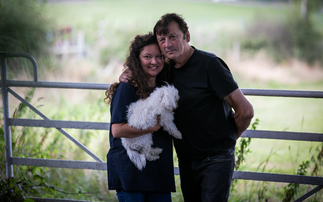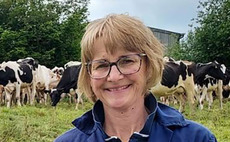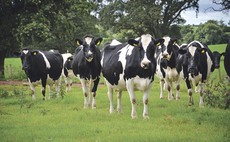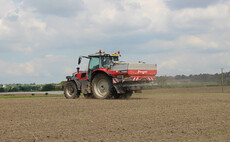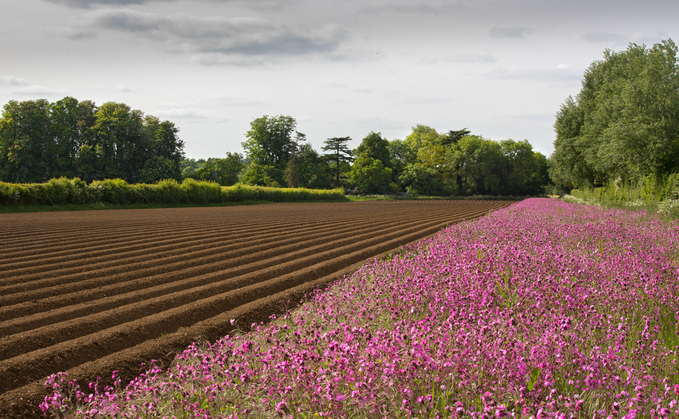
PICTURE: TIM SCRIVENER
New Environmental Farm Business Tenancies (eFBTs) will put in place an agreement which will provide the ‘guardrails' for farmers to continue long-term sustainable food production while delivering enhanced nature recovery across the Crown Estate.
That was the message from Paul Sedgwick, deputy ranger and managing director of Windsor and rural at the Crown Estate, who added that the first new eFBTs would be issued this autumn and that they would continue to be rolled out across the estate portfolio as existing FBTs expire.
Tenant farmers
In April 2022, the Crown Estate launched a new strategy for its rural portfolio, with the intent of moving from a passive ‘hands-off' institutional landowner to developing a more ‘collegiate relationship' with its farmers.
READ ALSO: Baroness Kate Rock has Defra role terminated
Mr Sedgwick said: "We aim to take a leading position to drive forward systemic change across the let land sector to help tackle some of the key issues facing the UK today – this includes the journey to net zero, the nature and biodiversity crisis, and the need to produce food sustainably and profitably." He added food production remained ‘at the core of our rural strategy'. "The key motivation behind the eFBT was to develop a new style of FBT to enable both the Crown Estate and its farmers to overcome these challenges," he said.
'Working closely'
When probed if tenant farmers had been consulted, Mr Sedgwick said they had been ‘working closely' with focus groups of farmers across a small number of estates where the new eFBT would be piloted this year. Mr Sedgwick said: "There is obviously some nervousness when you start making changes, but we are committed to the long-term future of the tenanted farming sector and we need a farm tenancy agreement that reflects the competing land use challenges that we face today and we will face in the future.
READ ALSO: Changes to succession rules for agricultural tenancies
"This is our considered attempt at answering these challenges – it might not be 100% right, but it is a promising start. I have no doubt that it will evolve as our farmers, their agents and the Tenant �������� Association [TFA] provide feedback, which we will be actively seeking from them in order to deliver something that works for everybody." He said the estate wanted to understand ‘tension points' and work through them to find an agreement which was ‘fit for the future', adding he was under ‘no illusion' it would be perfect from the outset but that it had to ‘start somewhere'.
Data collection
When asked if tenants would be required to measure and collect data as part of an eFBT, he said there was a need to be able to ‘consistently measure the changes that [were] being made across all [the estate's] farms'. The estate was in discussions on how to provide a ‘one-stop-shop' for both farmers and the estate. "We envisage that setting up this data collection and the ongoing reporting will initially be paid for by the Crown Estate," he added.
READ ALSO: Defra £130 million underspend of agriculture budget a 'kick in the teeth'
When asked what the average length of an eFBT would be, Mr Sedgwick said it would be an initial term of 15 years. He said that, on the whole, eFBTs were ‘flexible enough' to cover most eventualities, but it was likely that there would be ‘some farms' where it was ‘not appropriate due to their soil type'.
Tenant ��������' Association
TFA chief executive George Dunn said the Crown Estate had ‘woken up' to the fact that the rural estate provided financial returns and was at the heart of ‘achieving carbon net zero' and nature recovery.
READ ALSO: Tenanted sector 'losing momentum', warns Tenant �������� Association
"The Crown Estate has told us that it wants to reimagine and re-engineer its relationships with its farm tenants to take more of a partnership approach than has hitherto been the case. "We are therefore working with the Crown Estate in the development of its FBT agreements to meet that goal," said Mr Dunn.












